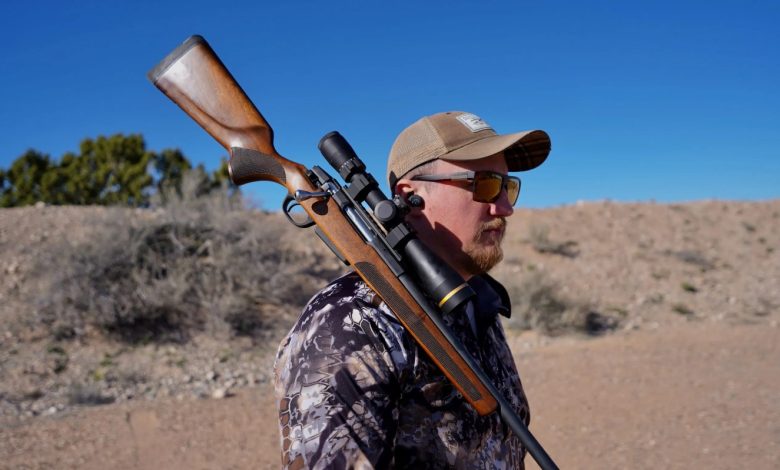Essential Criteria for Choosing the Right Hunting Rifle

Selecting the right hunting rifle is a critical decision for any hunter. The rifle is not just a tool; it’s an extension of the hunter, playing a vital role in hunting success and enjoyment. This comprehensive guide aims to simplify the process by focusing on essential criteria, ensuring you make an informed choice tailored to your hunting needs and preferences.
Table of Contents
1. Purpose and Game Type
The first consideration is the type of game you plan to hunt. Different game species require different rifle characteristics. For small game, such as rabbits or squirrels, a .22 caliber rifle might suffice. For larger game like deer, elk, or bear, you’ll need a rifle with more power, typically ranging from .243 to .300 caliber or higher. Each game species has an ideal caliber for humane and effective hunting.
2. Rifle Action Types
Rifles come in various action types: bolt-action, lever-action, semi-automatic, and pump-action. Each has its pros and cons. Bolt-action rifles, like the Remington 700, are renowned for their accuracy and reliability. Lever-action rifles offer faster follow-up shots and a classic feel. Semi-automatics provide rapid-fire capability, useful in certain hunting scenarios. Pump-action rifles are known for their versatility and ease of use. Your choice should be based on the type of hunting you’ll be doing and your personal preference.
3. Barrel Length and Material
The barrel is a critical component of a rifle’s accuracy and maneuverability. Longer barrels generally provide better accuracy but can be cumbersome in dense brush. Shorter barrels are easier to handle but might sacrifice some accuracy at long distances. The material of the barrel also matters; stainless steel resists corrosion better, while traditional blued steel can offer a cost advantage.
4. Caliber and Ammunition
The caliber of a rifle determines the size of the ammunition used. Higher calibers offer more power, essential for larger game, but also more recoil. Consider your ability to handle recoil, as it affects shooting accuracy and comfort. Ammunition availability and cost are also important factors. Some calibers have more readily available and affordable ammunition.
5. Optics and Sights
A good scope can greatly enhance a rifle’s effectiveness, especially at longer ranges. Consider the clarity, magnification, and durability of the scope. Iron sights might be sufficient for short-range hunting or as a backup. Your choice should align with the typical distance you expect to shoot and the game you’re targeting.
6. Stock Material and Ergonomics
Rifle stocks come in various materials, such as wood, synthetic, or laminates. Wood stocks have a traditional appeal but can be heavy and sensitive to environmental conditions. Synthetic stocks are lightweight and weather-resistant. The ergonomics of the stock is crucial for comfortable and accurate shooting. Ensure the stock fits your body and shooting style.
7. Weight and Portability
The weight of the rifle is a major consideration, especially for hunters who trek long distances. A lighter rifle is easier to carry but may have more felt recoil. Balance is key; the rifle should feel comfortable and stable in your hands.
8. Reliability and Maintenance
A reliable rifle is essential for hunting success. Research the rifle’s track record for reliability and ease of maintenance. Consider how easy it is to disassemble and clean, as regular maintenance is crucial for the longevity and performance of the rifle.
9. Customization and Accessories
Consider the potential for customization. Some rifles offer more options for aftermarket modifications and accessories, which can enhance performance and comfort. However, remember that not all modifications are necessary and can add to the cost.
10. Budget and Value
Finally, consider your budget. While it’s tempting to go for the most expensive option, more expensive doesn’t always mean better. Determine the features you need and find a rifle that offers the best value within your budget. Remember to factor in the cost of additional accessories like scopes, slings, and cases.
Conclusion:
Choosing the right hunting rifle involves a balance of many factors. Consider the type of game, rifle action, barrel, caliber, optics, stock, weight, reliability, customization options, and budget. Each hunter’s needs and preferences are unique, so take the time to research and, if possible, test different rifles before making a decision. Remember, the right rifle not only enhances your hunting experience but also ensures humane and ethical hunting practices.



